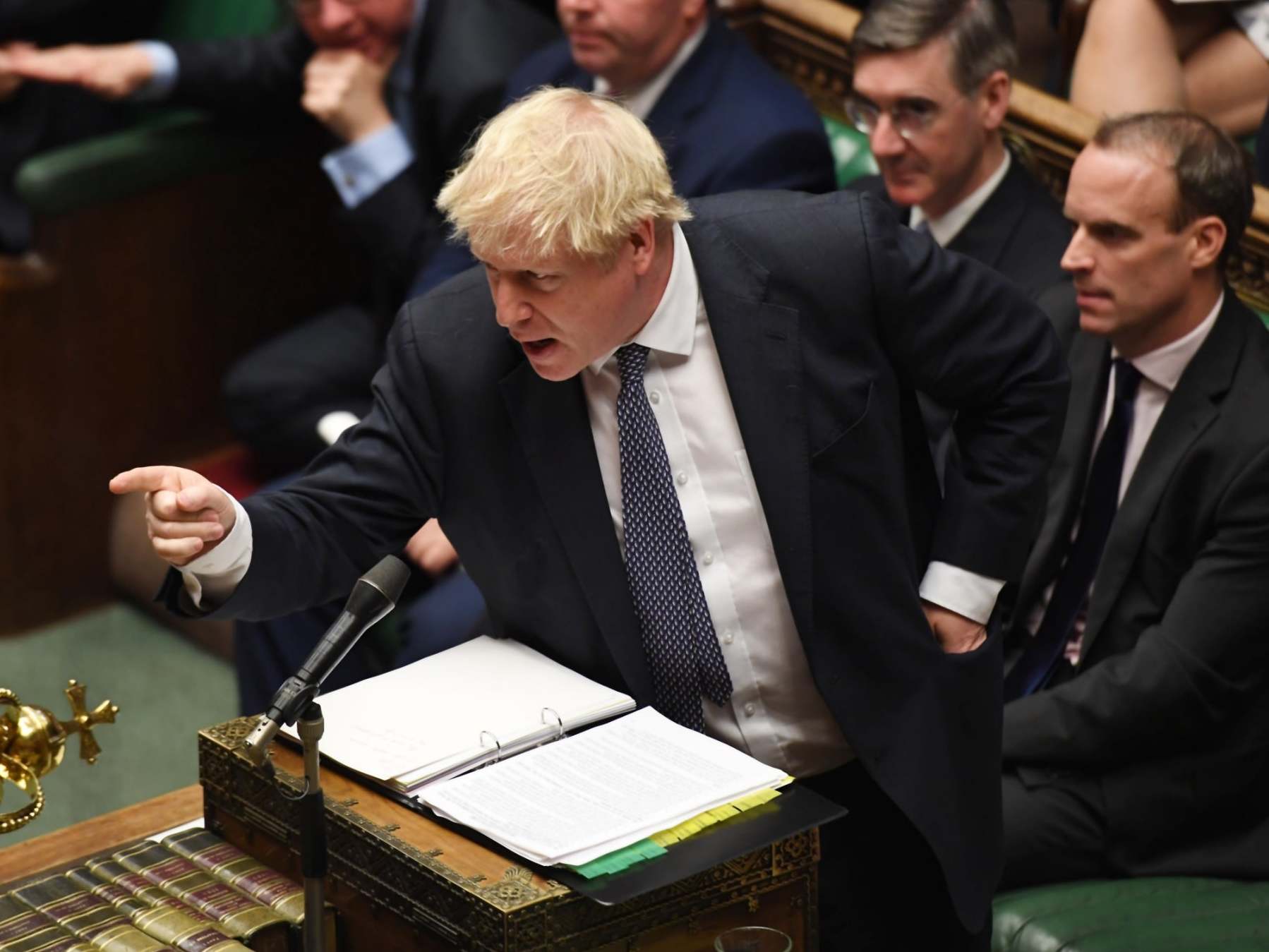What was the government’s threat to go ‘on strike’ about?
It looks like another black mark against Dominic Cummings – but there’s method in the recklessness of the PM’s adviser, writes John Rentoul


When Boris Johnson announced on Thursday that he would ask MPs on Monday to vote for an early election, there were several things he did not say in his letter to Jeremy Corbyn or in his short TV interview.
One obvious question was: what would he do if – as seems likely – MPs refused to vote by the required two-thirds majority for an early election? So journalists in Westminster asked the prime minister’s spokespeople, and some of their answers were surprising.
“The government will not proceed with the bill,” they said. The withdrawal agreement bill would be “pulled”, and the government would refuse to put any other business through parliament. Instead, the prime minister would “campaign every day and at every opportunity for a general election”.
They did not use the word “strike”, but the impression they gave was that the business of government would cease until MPs accepted that an election was the only way to end parliament’s delay and obstruction of Brexit. This seemed to be confirmed a short time later, when the Treasury announced that the budget, pencilled in for 6 November, had been postponed.
The idea of a government going on strike didn’t make much sense, which is why journalists reported it so prominently. It also seemed to clash with the prime minister’s message of trying to “get Brexit done”.
He had won a vote in the Commons on the principle of the Brexit bill, and the opposition had offered to discuss a “reasonable” timetable, but now it was Johnson who seemed to be standing in the way of getting the legislation through.
Nor was the threat to abandon the bill believable. Johnson had already threatened to “pull” it once, if the Commons voted against his short timetable for it, but he had then merely “paused” it.
So it was no surprise when the message from the prime minister’s spokespeople was reversed on Friday. The government would not be going on strike after all; the prime minister “has a domestic agenda”, they said: “We want to deliver for the British public.”
It was like a badly organised trade union calling off a strike when it realised most of its members had already crossed the picket line.
Chalk up another mark against the Dominic Cummings wing of Johnson’s No 10 operation. Another empty threat causing confusion, not least in Downing Street itself, with the prime minister’s position changing by the hour. It seemed typical of Cummings, the former director of the Vote Leave campaign in the 2016 referendum, who had been responsible for suggesting the prime minister would find a way round the Benn Act, the law designed to prevent a no-deal Brexit. (He might still, of course, if Emmanuel Macron, the French president, refuses to allow an extension to the Brexit timetable, but Cummings also insisted for a long time that Johnson wouldn’t send the letter asking for an extension or had thought of other ways of dodging the law.)
Nevertheless there is method in Cummings’s recklessness. For most people who don’t pay much attention to politics – and even for the many who do pay attention who have been confused in the last few days – recent headlines have got some simple messages across. Johnson really, really, really wanted to get Brexit done by 31 October; parliament delayed it. Johnson wants an election; the other parties do not.
Those are two solid gains for the prime minister’s standing in public opinion.
Join our commenting forum
Join thought-provoking conversations, follow other Independent readers and see their replies
Comments
Bookmark popover
Removed from bookmarks